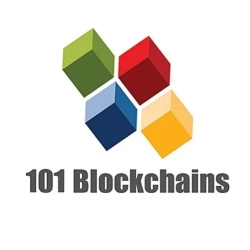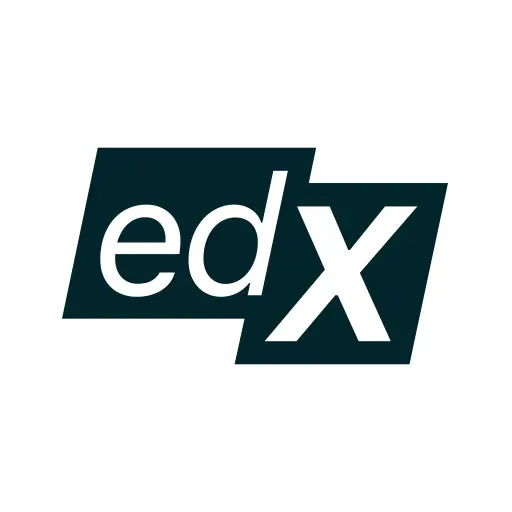- Key Takeaways
- Soft
Skills That Set You Apart in the Job Market - Communication
Skills Employers Notice - Critical Thinking and Problem-Solving
- Digital Literacy and Tech Fluency
- Teamwork
Skills Employers Value - Time Management and Prioritization
- Emotional Intelligence at Work
- Adaptability and Change Readiness
- Why Evidence of
Skills Beats Claims - How Signaling Reduces
Hiring Risk - High-Leverage Ways to Translate Experience Into Value
- Next Steps
- Final Words
- Additional Resources
We may earn a commission if you click on a product link and make a purchase at no additional cost to you. For more information, please see our disclosure policy.
Last updated: October 28, 2025
Key Takeaways
- Employers Value Transferable
Skills : Communication,critical thinking , teamwork, and time management consistently influencehiring decisions across roles and industries. - Tech Fluency Is Non-Negotiable: Baseline digital literacy and comfort with common software platforms are expected in most professional environments.
- Mindset Matters: Adaptability, resilience, and emotional intelligence strongly predict on-the-job performance and long-term growth.
- Details Win Offers: Attention to detail and clear writing in your resume and application materials signal reliability and professionalism.
- Keep Learning: Continuous upskilling—formal or self-directed—demonstrates initiative and readiness for evolving business needs.
In today’s competitive job market, understanding what employers are looking for in potential candidates is crucial for anyone aiming to stand out. As industries evolve rapidly, the demand for specific
This guide delves into the essential abilities and traits that can set you apart, ensuring your resume not only catches the eye of
Soft Skills That Set You Apart in the Job Market
Employers consistently prize soft
Discover the top 5 soft skills that can boost your career growth, improve workplace performance, and help you become the most effective version of yourself.
Communication Skills Employers Notice
In the professional sphere, proficiency in both oral and written communication is indispensable, encompassing engaging with others, responding to inquiries, and comprehending instructions. Employers assess your communication skills through your application materials, including resumes and cover letters, so clarity and consistency matter. Practice active listening and tighten your writing to improve day by day; small gains compound quickly in interviews and on the job.
- Active Listening: Fully engaging with the speaker, acknowledging their message, and responding thoughtfully.
- Clear Writing: Conveying messages in a straightforward, concise manner that avoids ambiguity.
- Feedback: Giving and receiving constructive input to foster open, honest communication.
Critical Thinking and Problem-Solving
Critical thinking helps you analyze situations, weigh evidence, and choose sound actions. It reduces unnecessary workplace conflicts and drives better decisions in projects and
Aptitude Tests - Simulate Your Actual Test in a Life-Like Test Environment & Get to Know the Challenges Ahead
Digital Literacy and Tech Fluency
In today’s digital era, digital literacy underpins
Teamwork Skills Employers Value
Teamwork is the capacity to collaborate effectively with others to achieve shared goals. High performers communicate clearly, honor commitments, and resolve disagreements constructively. They adapt to shifting priorities, support colleagues, and understand how cross-functional dependencies shape results. These habits compound into trust, which shortens cycles, improves quality, and makes teams resilient under deadline pressure.
Become focused, organized, and calm with Todoist. The world’s #1 task manager and to-do list app. Todoist is the personal and team task manager used by over 25 million people to keep track of everything from work projects to birthday reminders.
Time Management and Prioritization
Strong
- Prioritization: Elevate tasks with the most significant impact; renegotiate low-value work.
- Planning: Block focused time and batch similar tasks to reduce context switching.
- Distraction Management: Remove triggers, set boundaries, and use lightweight checklists to stay on track.
Emotional Intelligence at Work
Emotional intelligence shapes how you interpret situations and respond to others. Self-awareness and self-regulation curb unhelpful reactions; empathy and interpersonal
“GTD” is now shorthand for an entire way of approaching professional and personal tasks, and has spawned an entire culture of websites, organizational tools, seminars, and offshoots.
Adaptability and Change Readiness
Adaptability amplifies your value in evolving environments. Moving between priorities, tools, and even
Evaluate your
Why Evidence of Skills Beats Claims
Employers increasingly distinguish candidates not just by what they know but by how quickly they can become effective in real environments. Proof of competence now matters more than claims. Demonstrating outcome-based work — portfolios, shipped features, process improvements, metrics, and references — creates evidence that collapses doubt and accelerates trust in
Links to thousands of business, technology, creative skills, and development courses.
How Signaling Reduces Hiring Risk
The gap between mediocre applicants and top candidates often comes down to signaling. People who document decisions, articulate trade-offs, and explain failures without excuses project maturity and lower perceived
High-Leverage Ways to Translate Experience Into Value
One fast way to increase hireability is to translate raw experience into employer language. By structuring accomplishments in terms of business relevance — cost, speed, risk, quality, or growth — you turn tasks into results and raise perceived value before an interview even begins. Four high-leverage translation moves include:
- Attach a Business Axis: Frame achievements against cost, speed, quality, or risk so value is legible to non-experts.
- Compress to One Sentence: Rewrite long stories into concise “WHAT → HOW → RESULT” statements for use in interviews and resumes.
- Quantify the Delta: Add a number — even directional — to show lift, reduction, avoidance, or acceleration.
- Name the Constraint: State the limitation you worked within (time, headcount, data,
budget ) to elevate difficulty and credibility.
How To Intern Successfully aims to help you be informed and confident as you explore and then successfully complete your internship.
Next Steps
- Refresh
Your Resume : Update achievements with metrics, align keywords to target roles, and ensure formatting improves readability for human reviewers and ATS scans. - Audit Your
Skills : List required competencies from three job ads, highlight gaps, and pick one course or project to close each gap within thirty days. - Practice Communication: Draft a concise professional summary, rehearse two STAR stories, and request feedback from a peer to sharpen clarity and impact.
- Showcase Tech Fluency: Document tools you use weekly, add certifications or badges, and link to a portfolio or work samples demonstrating tangible outcomes.
- Expand
Your Network : Schedule two informational calls, comment thoughtfully on industry posts, and follow up with value—insights, leads, or introductions.
Final Words
Employers hire for potential as much as experience, and potential is demonstrated through transferable
Links to thousands of business, technology, creative skills, and development courses.
Additional Resources
-
 Learn More
Learn MoreLearn without limits
Start, switch, or advance your career with more than 5,800 courses, Professional Certificates, and degrees from world-class universities and companies.
We earn a commission if you click this link and make a purchase at no additional cost to you.
-
 Learn New Skills
Learn New SkillsProve Mastery Through Hands-On Projects
Our open-ended projects are modeled after real-world workplace scenarios, and require in-depth critical thinking and creative solutions.
Succeed with Personalized Feedback
Every project receives personalized feedback from industry experts, and our mentors are available to answer questions whenever you're feeling stuck.
We earn a commission if you click this link and make a purchase at no additional cost to you.
-
 Learn New Skills
Learn New SkillsExplore your creativity with classes in illustration, photography, design, and more. Get unlimited access to classes on illustration, photography, design, film, music, and more.
We earn a commission if you click this link and make a purchase at no additional cost to you.
-
Get Started for Free
Build the real-world skills you need to stand out to employers hiring for entry-level roles with Chegg Skills. Select a career path below to access exclusive internships and gain real-world skills. Students who add top skills to their resume are 3x more likely to hear back from potential employers
We earn a commission if you click this link and make a purchase at no additional cost to you.
-
Learn More
Learn Finance with Top Industry Experts. The 365 Financial Analyst program equips you with the versatile skillset you need to start a career in data science
We earn a commission if you click this link and make a purchase at no additional cost to you.
-
Start learning a new skill
Ready to reimagine your career?
Get the skills and real-world experience employers want with Career Accelerators.
We earn a commission if you click this link and make a purchase at no additional cost to you.
-
College Placement Practice Tests
We are an industry leader in online test preparation offering practice tests that help you be as prepared as possible to pass your College Placement certification exams. We offer 21 different subjects with 350 unique exams totaling 18,565 questions from 5 testing groups.
We earn a commission if you click this link and make a purchase at no additional cost to you.
-
Learn More
LEARN PROMPT ENGINEERING FROM EXPERTS TO BECOME AN AI PRO
Build a bright career in AI as a Certified Prompt Engineer with our new accredited Certified Prompt Engineering Expert certification.
We earn a commission if you click this link and make a purchase at no additional cost to you.
-

$27.00$21.40Learn MoreWatanabe uses sample scenarios to illustrate his techniques, which include logic trees and matrixes. A rock band figures out how to drive up concert attendance. An aspiring animator budgets for a new computer purchase. Students decide which high school they will attend.
We earn a commission if you click this link and make a purchase at no additional cost to you.
02/24/2026 08:01 am GMT -
Try it for Free
Data Scientists often work with engineering teams. Learn the software engineering skills you need to bridge the gap between data science and
Includes Git & Github, Python, Bash, Command Line, Unit Testing, Logging, Object-Oriented Programming, and more.
We earn a commission if you click this link and make a purchase at no additional cost to you.
-
 Learn More
Learn MoreBoost your skills with the Blockchain Career Accelerator — get hired faster, stand out on LinkedIn, and become industry-ready!
We earn a commission if you click this link and make a purchase at no additional cost to you.
-
Learn More
Online courses for career smarter people.
Upskill with online courses, be career smarter.
We earn a commission if you click this link and make a purchase at no additional cost to you.
-
 Learn More
Learn MoreDiscover career-advancing courses and certificates from top universities on edX in business, technology, data science, healthcare, and more—build the skills that open doors to better jobs and bigger opportunities.
We earn a commission if you click this link and make a purchase at no additional cost to you.
Mark Fiebert is a former finance executive who hired and managed dozens of professionals during his 30-plus-year career. He now shares expert job search, resume, and career advice on CareerAlley.com.






